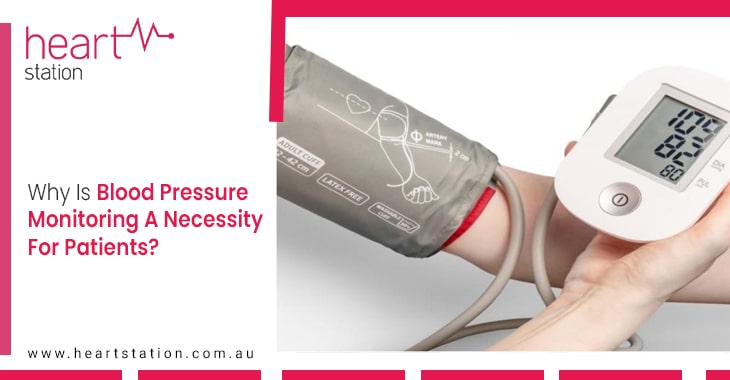In healthcare, one aspect that holds immense significance is blood pressure monitoring. Blood pressure is not just a set of numbers; it’s a critical indicator of overall health. As the Best Ambulatory Blood Pressure Monitoring Centre in Pimlico, Heart Station Clinic is dedicated to shedding light on the importance of blood pressure monitoring for patients.
- Understanding Blood Pressure
- Why blood pressure monitoring is necessary for patients?
Understanding Blood Pressure:
Blood pressure is the force of blood against the walls of your arteries as your heart pumps it around your body. It is typically represented by two numbers: systolic pressure (the higher number) and diastolic pressure (the lower number), measured in millimetres of mercury (mmHg). Normally blood pressure should be around 120/80 mmHg.
Why blood pressure monitoring is necessary for patients?
Early Detection of Hypertension:
One of the primary reasons for regular blood pressure monitoring is the early detection of high blood pressure or hypertension. Hypertension can develop without noticeable symptoms. If left unmanaged, it can lead to serious health issues, including heart disease, stroke, and kidney problems. Regular monitoring can catch high blood pressure early, allowing for prompt intervention and lifestyle changes.
Personalised Treatment Plans:
Blood pressure monitoring helps healthcare providers create personalised treatment plans for their patients. Everyone is unique, and what works for one person may not work for another. By tracking blood pressure over time, doctors can tailor treatment strategies to meet each patient’s specific needs, whether it involves medication, lifestyle modifications, or a combination of both.
Medication Management:
Monitoring is essential for patients who require medication to control their blood pressure. It ensures that the prescribed medications effectively maintain a healthy blood pressure level. Regular check-ups can also help identify any adverse effects of the medication, allowing for adjustments or alternative treatments when necessary.
Lifestyle Modifications:
Many cases of high blood pressure can be managed or even reversed through lifestyle modifications. These changes include adopting a healthier diet, increasing physical activity, reducing stress, and limiting alcohol and salt intake. Blood pressure monitoring helps patients and their healthcare providers track the impact of these changes, motivating patients to stick to their healthy habits.
Risk Assessment:
Blood pressure monitoring is key to assessing a patient’s overall cardiovascular risk. High blood pressure is a major risk factor for heart disease and stroke. By closely monitoring blood pressure, healthcare providers can calculate a patient’s risk and take appropriate preventive measures. This may include additional tests, such as cholesterol screening, to evaluate the patient’s cardiovascular health.
White Coat Syndrome:
Some patients experience “white coat syndrome,” which means their blood pressure spikes when they visit a medical facility due to anxiety or stress. Ambulatory blood pressure monitoring at Heart Station Clinic provides a more accurate picture of a patient’s blood pressure over 24 hours, eliminating the white coat effect and allowing for more precise diagnosis and treatment.
Conclusion
In conclusion, blood pressure monitoring is not just a routine checkup but a necessity for patients’ overall health and well-being. As the Best Ambulatory Blood Pressure Monitoring Centre in Pimlico, Heart Station Clinic is dedicated to providing state-of-the-art monitoring services to ensure the best care for our patients. If you are searching for an Ambulatory Blood Pressure Monitoring Centre Near Me, visit us. Your heart will thank you for it.

